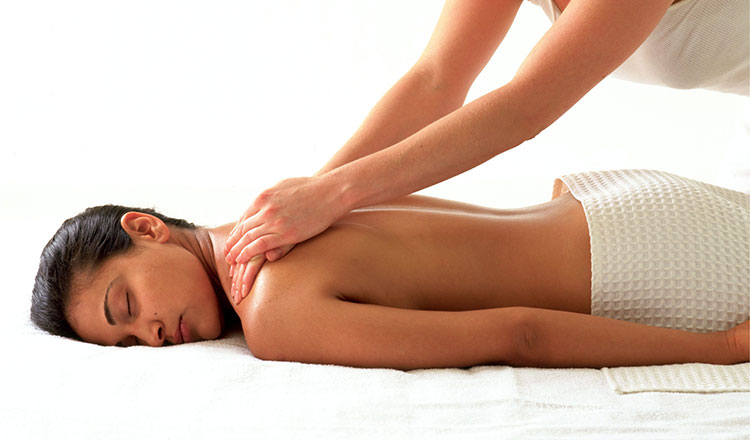Tight neck? Sore back? Constant headaches? While the causes of aches and pains can be varied, many people seek a solution in massage. Here’s why a massage can help with just about anything …
Modern life has a lot to answer for! Stress, being desk-bound for hours on-end, saggy mattresses and a whole lot of other necessary daily activities are leaving many people with aches, pains, stiffness and constant headaches. That’s why hundreds of Australians are seeking solutions through massage on a weekly basis. The effectiveness of massage are multimodal. Yes, it can help you relax, but massage can also help to reprogram the brain waves and reconfigure signals to release serotonin – those ‘feel good’ chemicals. Massage also has neurological and psychological benefits, physiological and biomechanical – the simple art of touch has healing properties and can alleviate spasms and improve productivity in the workplace and even happiness in the home.
More often than not, stress tends to manifest in the shoulders and neck. This has been linked to psychological distress in the context of the injury, where the brain feels threatened and amplifies normal pain signals. Desk workers, beware! Then, there are the more advanced forms of postural stress, which show up as pain or weakness in the lower back and gluteal muscles, often resulting in a locked neck in the morning (known to medicos as an acute wry neck), a response commonly exaggerated and partly unnecessary.
So stop feeling guilty about having a massage – there are many great benefits that can help improve your quality of life. Here, Petro Kuiper from Physio on Brunswick reveals five massage benefits…
IT IMPROVES YOUR BODY’S FLOW
Think of your body as a series of roads, with traffic lights spaced intermittently from head to toe. When you’re tense, imagine all those traffic lights red – traffic chaos and gridlock. Now, imagine all those lights green, and the traffic moving freely around your body. Feel lighter already? “Tensed muscles restrict blood and lymph flow,” explains Petro. “This causes wastes like uric and lactic acid to build up in the muscles. The gentle pressure of massage clears waste products in the muscles. It can break tissue adhesions too, for example scar tissue in the muscle. It also encourages blood and lymphatic circulation and muscle tissue glides easier after a massage because it increases flexibility in the muscle.”
YOUR MUSCLE TISSUE WORKS BETTER
Exercise-induced stress on muscles, lack of exercise and other incidental body pressures can all place stress on the muscles, and how they work. But massage will help. “Massage reinstates compartmental pressure gradients,” explains Petro. “This allows better fluid exchange between tissues, and between muscle fibres.”
YOUR FLEXIBILITY BECOMES… MORE FLEXIBLE
Sports injuries can leave limbs limp, and a lack of exercise can cause joints to tighten and become stiff and inflexible. That can be a big problem when you go to reach for the stars, or catch a ball, and almost pull your pectorals. “Massage improves flexibility as it improves circulation to the muscles, allowing them to repair any damage,” explains Pietro.
IT CAN REDUCE HEADACHES
“Next time a headache hits, schedule some quality time with a massage therapist or take 20 minutes and relax in a massage chair,” advises Pietro. “Massage helps decrease the frequency and severity of tension headaches because a headache is caused by tight neck, shoulder and postural muscles a lot of the time.”
YOU’LL ENJOY DEEPER SLEEP
Counting sheep not your thing? Massage can have you drifting off in no time… “If you’ve ever dozed off on a massage table, you don’t need to be convinced that a massage can promote healthy sleep,” explains Pietro. “Massage affects delta waves – brain waves connected to deep sleep to reach a deeper REM.”
To find a qualified massage therapist in your area, visit the Australian Association of Massage Therapists, which has over 7500 accredited therapist members.
Have massages helped improve your life? Tell us your experience in the comments below!








